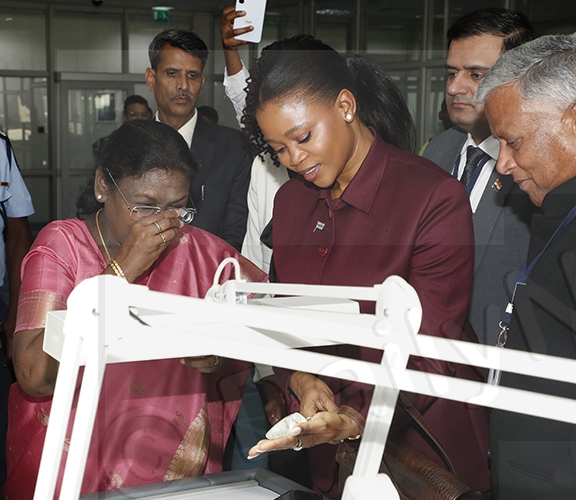BoB adjusts lending rates
02 May 2022
Bank of Botswana has increased the Monetary Policy Rate by 0.51 per cent or 51 basis points which in turn sees a rise prime lending rate from 5.25 to 5.76 per cent.
The increase on lending rates comes amidst the increasing inflation which had been hovering around 10 per cent, way above the medium term objective range of three to six per cent.
In a press release, Bank of Botswana says the inflation rate, which had been driven by the supply-side factors, would remain higher than the objective rate but continue to decline for the remaining months.
The bank expects the inflation rate to be within the objective rate next year as impact adjustment of Value Added Tax (VAT) and administered prices fall from the calculation.
On the downside, there are fears that inflation could remain elevated due to factors that include the potential increase in international commodity prices beyond the current forecasts, persistence of supply and logistical constraints due to lags in production and the economic effects of the ongoing Russia-Ukraine conflict.
Other factors are the uncertain COVID-19 profile, domestic risk factors relating to possible regular annual administered prices adjustments and short-term unintended consequences of import restrictions.
The bank states, however that the risks are moderated by the possibility of weaker than anticipated domestic and global economic activity due to geo-political tensions and possible periodic lockdowns and other forms of restrictions in response to the emergence of new COVID-19 variants.
Meanwhile, the World Bank had pointed the war in Ukraine to have caused major supply disruptions leading to high prices for a number of commodities.
It is said commodity prices are expected to be higher in 2022 than in 2021 and to remain high in the medium term.
“Rise of Brent Crude oil is projected to average $100 billion per barrel in 2022, a 42 per cent increase from 2021 and its highest since 2013,” the World Bank states in its Commodity Markets Outlook report published last week.
Prices of wheat are forecast to increase by more than 40 per cent this year, reaching an all-time high in nominal terms.
“The outlook for commodity markets depends heavily on the duration of the war in Ukraine and the severity of disruptions to commodity flows, with a key risk that commodity prices could be higher for longer,” the World Bank states.
To deal with high prices, policy makers are advised to provide targeted support to poorer households facing higher food and energy prices.
In an interview, an independent economist, Mr Louis Sibanda regretted the move by the bank to increase the lending rate by 0.51 per cent, saying that would hit Batswana hard given that majority of them were consumers.
“Many Batswana do not have a saving culture and therefore they are going to sink further in debt. Only people who have savings accounts will benefit from the increase,” Mr Sibanda said.
He added that the increase would also see Batswana faced with additional payments for new and existing loans, further inhibiting them from saving amidst an environment of high commodity prices.
He added that the current inflation rate was artificial as it had been brought about by the government’s decision to impose import ban on selected vegetables and that did not mean cost of production was high. BOPA
Source : BOPA
Author : Tebagano Ntshole
Location : MOCHUDI
Event : Press Release
Date : 02 May 2022





